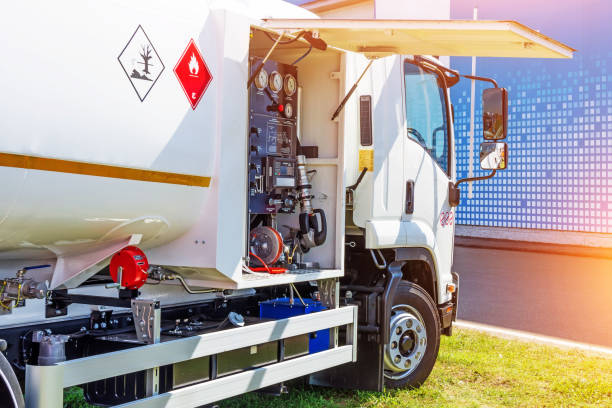How the Electrification of Everything Could Pave the Way for a Surge in Propane Usage

In recent years, the concept of electrification has gained significant traction as a means to combat climate change and reduce greenhouse gas emissions. As societies strive to transition to cleaner energy sources, the focus has predominantly been on the electrification of various sectors such as transportation and heating.
However, amidst this push towards electrification, an unexpected opportunity emerges for propane, a versatile and environmentally friendly fuel.
The Electrification Trend
The electrification movement has gained momentum as governments, industries, and consumers increasingly recognize the urgency to decarbonize our energy systems. The transportation sector, for instance, has witnessed a significant shift towards electric vehicles (EVs), with automakers investing heavily in electric technology and expanding the charging infrastructure. Similarly, the residential and commercial sectors are embracing electric heating solutions, such as heat pumps, to reduce reliance on fossil fuels. While these developments are commendable, they present challenges and limitations that open the door for propane’s resurgence.
Propane’s Advantages in a Changing Landscape
1. Versatile Applications: Propane’s versatility is a significant advantage that positions it as an adaptable solution across multiple sectors. In addition to its well-established use in residential heating and cooking, propane-powered vehicles, generators, and agricultural equipment have gained popularity. Moreover, propane’s portability and ease of use make it a reliable choice for off-grid applications and emergency backup power.
2. Environmental Benefits: Propane boasts several environmental advantages that make it an appealing choice in a greener world. When compared to traditional fossil fuels, propane combustion produces significantly lower greenhouse gas emissions, reducing the carbon footprint across various applications. Furthermore, propane combustion generates minimal particulate matter and virtually eliminates sulfur dioxide emissions, contributing to improved air quality.
3. Energy Security and Resilience: As societies become more reliant on electricity, concerns regarding energy security and grid resilience emerge. Natural disasters, extreme weather events, and cybersecurity threats can disrupt electricity supply, leading to widespread outages. Propane, with its on-site storage capabilities, offers a measure of energy security, allowing users to maintain essential services even during power disruptions.
Propane’s Role in the Electrified Future
1. Hybrid Solutions: In many cases, a hybrid approach combining electricity and propane can deliver optimal results. Hybrid-electric vehicles, for instance, utilize electricity for short trips while relying on propane for longer journeys, providing extended range and reducing the strain on charging infrastructure. Similarly, hybrid heating systems can leverage both electric heat pumps and propane-powered furnaces, achieving greater efficiency and flexibility in temperature control.
2. Power Generation: Propane’s role in power generation should not be overlooked. As renewable energy sources like solar and wind continue to expand, their intermittent nature necessitates energy storage solutions. Propane-based generators offer a reliable and efficient backup power source during periods of low renewable energy production, ensuring uninterrupted electricity supply.
3. Propane as a Renewable Energy Carrier: Recent advancements in renewable propane, derived from sustainable sources such as biomass or renewable hydrogen, present an exciting opportunity. Renewable propane offers the same advantages as traditional propane while significantly reducing its lifecycle carbon footprint. This renewable variant can be seamlessly integrated into existing propane infrastructure, making it an attractive option for achieving carbon neutrality goals.














